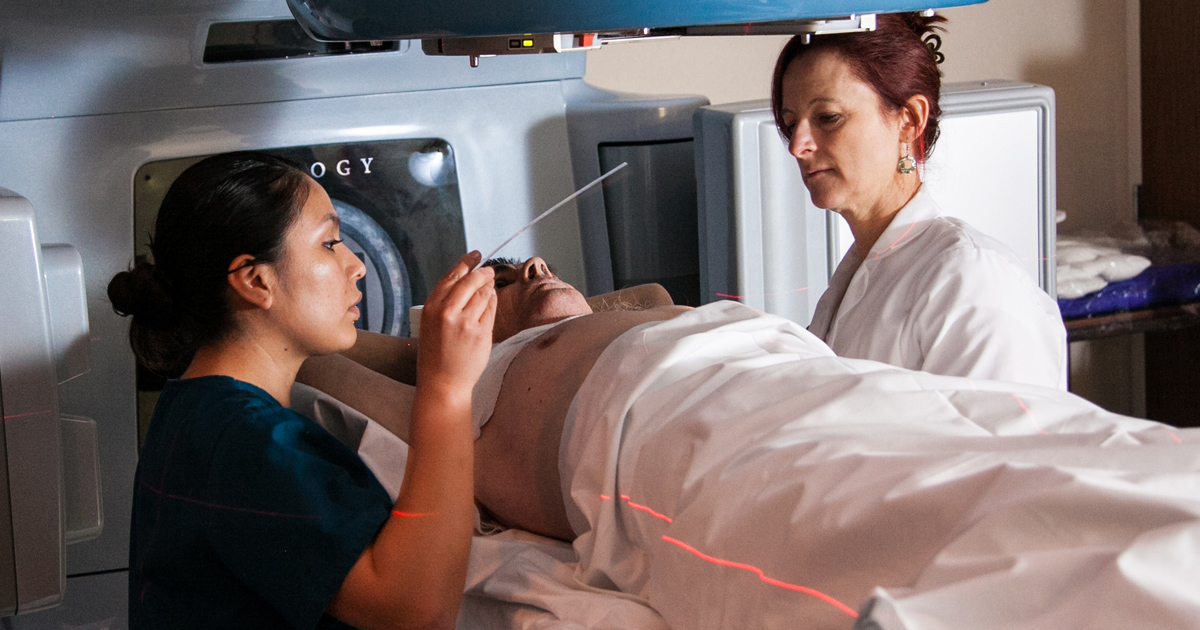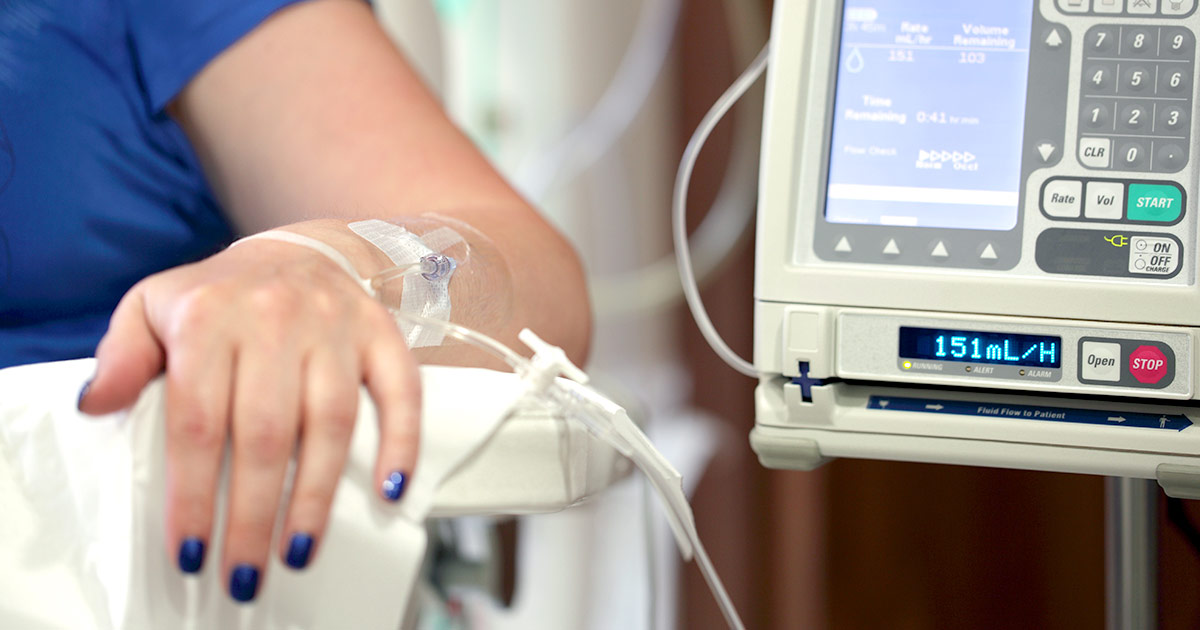Guide To Colon Cancer Diagnosis And Treatment Options
Radiation Therapy

Radiation therapy with or without a surgical procedure may be needed as part of treatment to eliminate all cancerous cells in a colon cancer patient. Radiation therapy is used more often in patients who have cancer that affects their rectum before or following the surgical removal of the tumor. This type of treatment is also used in cases where a patient's colon or rectum malignancy is inoperable, and may or may not be used in combination with chemotherapy. Radiation therapy is a noninvasive procedure where cancer cells are eliminated through the use of high energy x-ray beams. Radiation therapy works by aiming these energy beams at the cancerous cells so the beams cause mutations, partial destruction, or complete destruction of the DNA within the cancerous cells. This process can cause the cells to die immediately, die at a later time, be unable to grow, and or be unable to divide. Radiation for colorectal cancer is typically given five days a week on an outpatient basis for between five and six weeks. For palliative purposes or where symptoms are only being treated, the frequency and duration of radiation therapy sessions may vary.
Keep reading to uncover more options for effectively treating colon cancer now.
Chemotherapy

A colon cancer patient may need to undergo chemotherapy independently or in addition to a surgical procedure to ensure all cancerous cells are eliminated from the body. Chemotherapy can be given as a systemic treatment or a regional treatment in individuals affected by colon cancer. Systemic chemotherapy describes a process where chemotherapy drugs are intravenously delivered into a vein so they reach all parts of the patient's body. Regional chemotherapy describes a process where chemotherapy drugs are injected directly into a specific artery that only carries blood to the part of the body where the cancer is located.
Chemotherapy drugs work by killing or damaging all cells in the process of dividing. However, side effects are more significant with chemotherapy because the chemotherapy drugs cannot distinguish healthy dividing cells from malignant dividing cells. Neoadjuvant chemotherapy is chemotherapy administered before a patient has surgery to help shrink the tumor so it is easier to excise. Adjuvant chemotherapy is given following a patient's tumor removal surgery to kill off any malignant cells left behind from surgery or those that migrated to another part of the body.
Uncover information on more ways to treat colon cancer now.
